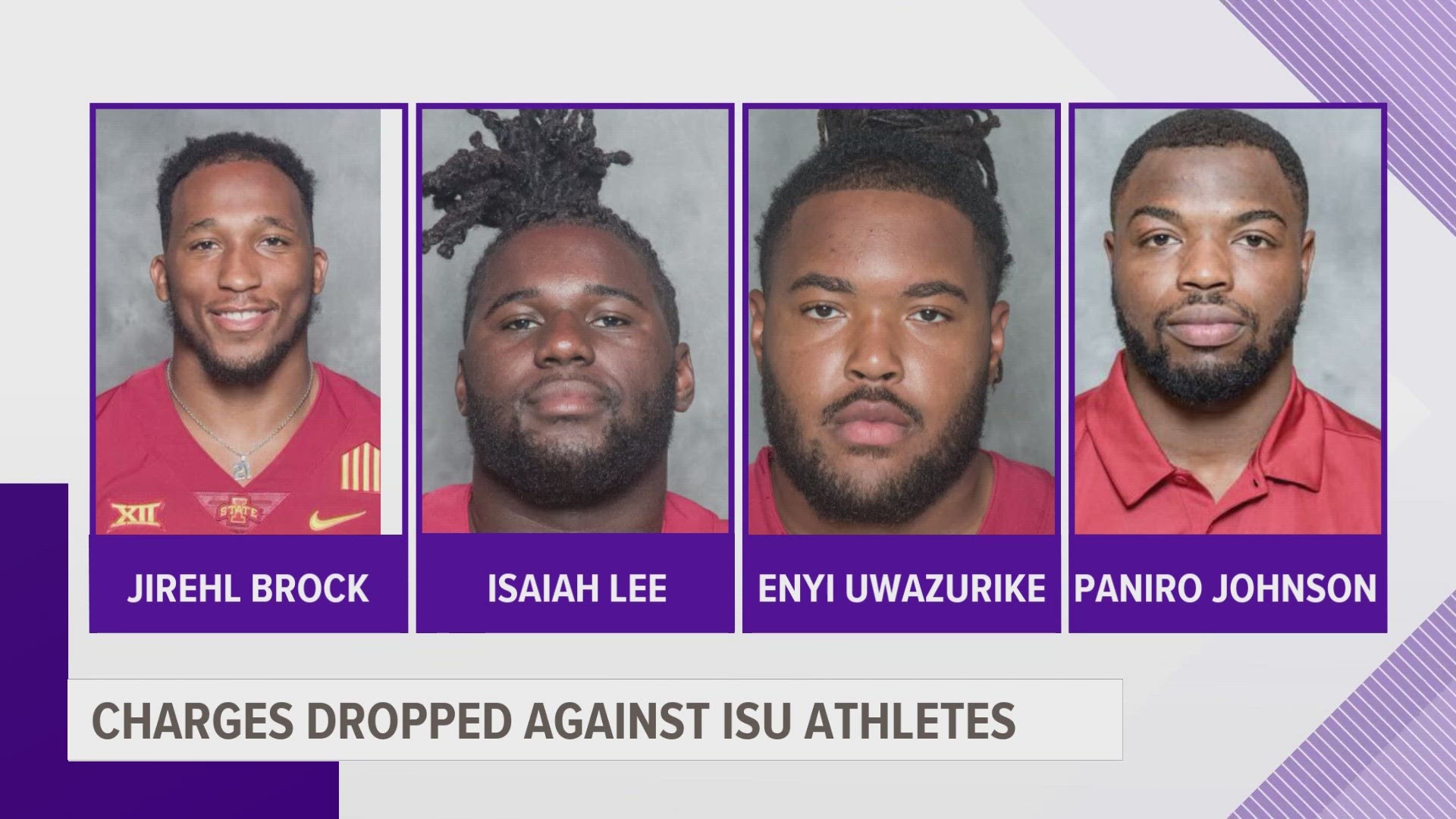AMES, Iowa — The prosecutor handling the sports wagering case against four former or suspended Iowa State athletes has asked a judge to dismiss all charges.
In a motion filed Friday in Story County District Court, Assistant County Attorney Benjamin Matchan wrote that the Division of Criminal Investigation exceeded the scope of permitted use of tracking software that detected open mobile betting apps in ISU athletic facilities.
“Due to this newly discovered evidence, the State no longer believes further prosecution in this matter is in the interests of justice,” Matchan wrote.
Attorneys for former football players Isaiah Lee, Jirehl Brock and Enyi Uwazurike and suspended wrestler Paniro Johnson filed a motion to suppress earlier this week.
The four are among about two dozen Iowa State and Iowa athletes criminally charged last year. They each faced a felony charge of identity theft and an aggravated misdemeanor charge of tampering with records.
A Story County judge approved the motion to dismiss, writing "The court finds and concludes that the State's motion to dismiss is filed for good cause and indeed serves the interests of justice."
"The decision by the Story County Attorney’s Office to discontinue prosecution of these four cases is disappointing," Iowa Department of Public Safety Commissioner Stephan Bayens said in a statement. "Despite their decision, they repeatedly shared with us their belief that the Division of Criminal Investigation’s actions were legal."
Most of the athletes who were charged pleaded guilty to underage gambling, paid fines and had identity theft charges dropped.
The identity theft charges stemmed from athletes registering accounts on mobile sports betting apps under different names, usually a relative.
Defense attorneys have said there was no probable cause for the searches into online wagering activities that resulted in criminal charges and lost NCAA eligibility.
In the motion to suppress, the defense alleged a special agent for the Iowa Division of Criminal Investigation violated the agency’s limited-use agreement with a geofencing tracking firm when he used its software to locate places inside ISU athletic facilities where athletes were making wagers on mobile betting platforms. The agent later obtained account information from the platforms to identify the athletes and third parties whose credit cards were used.
The motion contends use of the tracking software was unconstitutional because no warrant had been issued, and it noted that the software firm, GeoComply, cut off DCI’s access to the tool last month because the user agreement was violated.

